By Professor Tiffany Banks On Tuesday, September 30th , students from my COMM 108: Foundations…
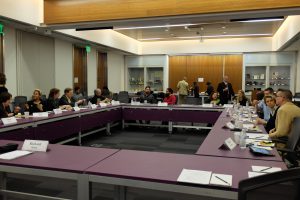
The 21st year of the Montgomery College-Smithsonian Faculty Fellowship got off to a rousing start on March 1. This year’s opening panel took place at the National Museum of American History (NMAH), a fitting place to kick off our theme, “We the People: America’s Grand and Radical Experiment with Democracy”.
Following a welcome by Philippa Rappaport, Community Engagement Programs Manager, Smithsonian Center for Learning and Digital Access (SCLDA), the 2018 Fellows had the rare privilege of hearing Richard Kurin, SI Distinguished Scholar and Ambassador-at-Large, Office of the Secretary, speak on the topic of The Smithsonian & Cultural Democracy. His talk provided the group with insight about the founding and evolution of the Smithsonian, and how our theme has been echoed in that history. Through his presentation, Fellows gained a deeper appreciation of the importance of cultural preservation and its role in a nation’s collective identity. An understanding of the role the Smithsonian continues to play in carrying out this mission on both national and global scales was also gained.
Jessica Johns, Digital Engagement Producer, National Museum of African American History and Culture (NMAAHC) followed with a presentation on Inclusive Storytelling. She gave an overview of the many ways the NMAAHC collects stories, and the essential role personal recollections have in preserving history. These include platforms such as museum blogs, Facebook and twitter, along with the stories visitors to the museum are able to record in booths throughout the museum. Fellows were encouraged to become part of these conversations.
Catalyzing Conversation and Promoting Civil Dialogue through History Education was the topic of our last speaker, Christopher Wilson, Director, Program in African American Culture, NMAH. He reminded our group of the power of connection that happens through conversation, and its potential for needed discourse on areas of difference and disagreement. NMAH programs such as Head to Head, which employs the bracket model used in sports tournaments to weigh relative contributions of historical events such as the Civil Rights movement, and Time Trials, which allows viewers to serve as judges in the Court of public history as they reexamine controversial events have been successful in promoting civil dialogue while educating participants about historical events.
Our afternoon culminated with a visit to Unity Square, which contains the famous Greensboro Lunch counter as well as American Experiments, a series of activities allow visitors to begin the kinds of conversations we had just been talking about. It was a wonderful and rich afternoon and a perfect way to start our 2018 museum seminar series.
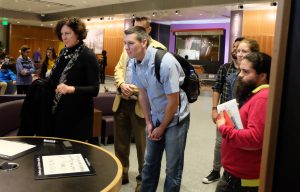
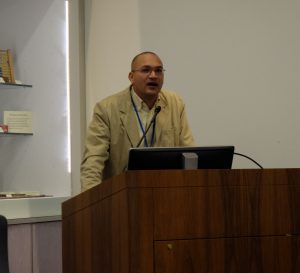
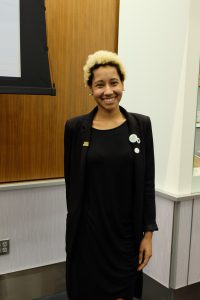
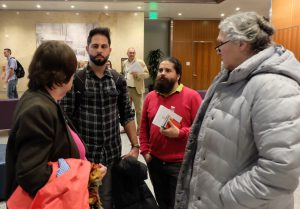




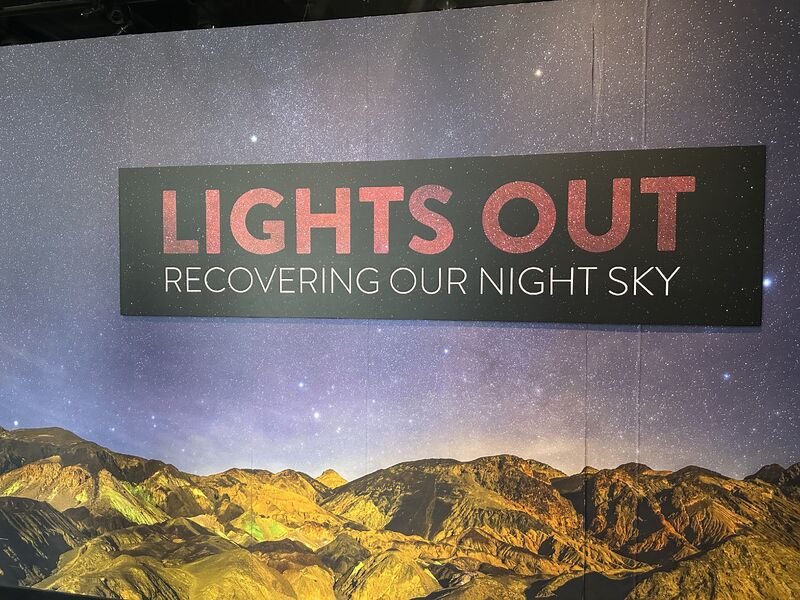
This Post Has 0 Comments